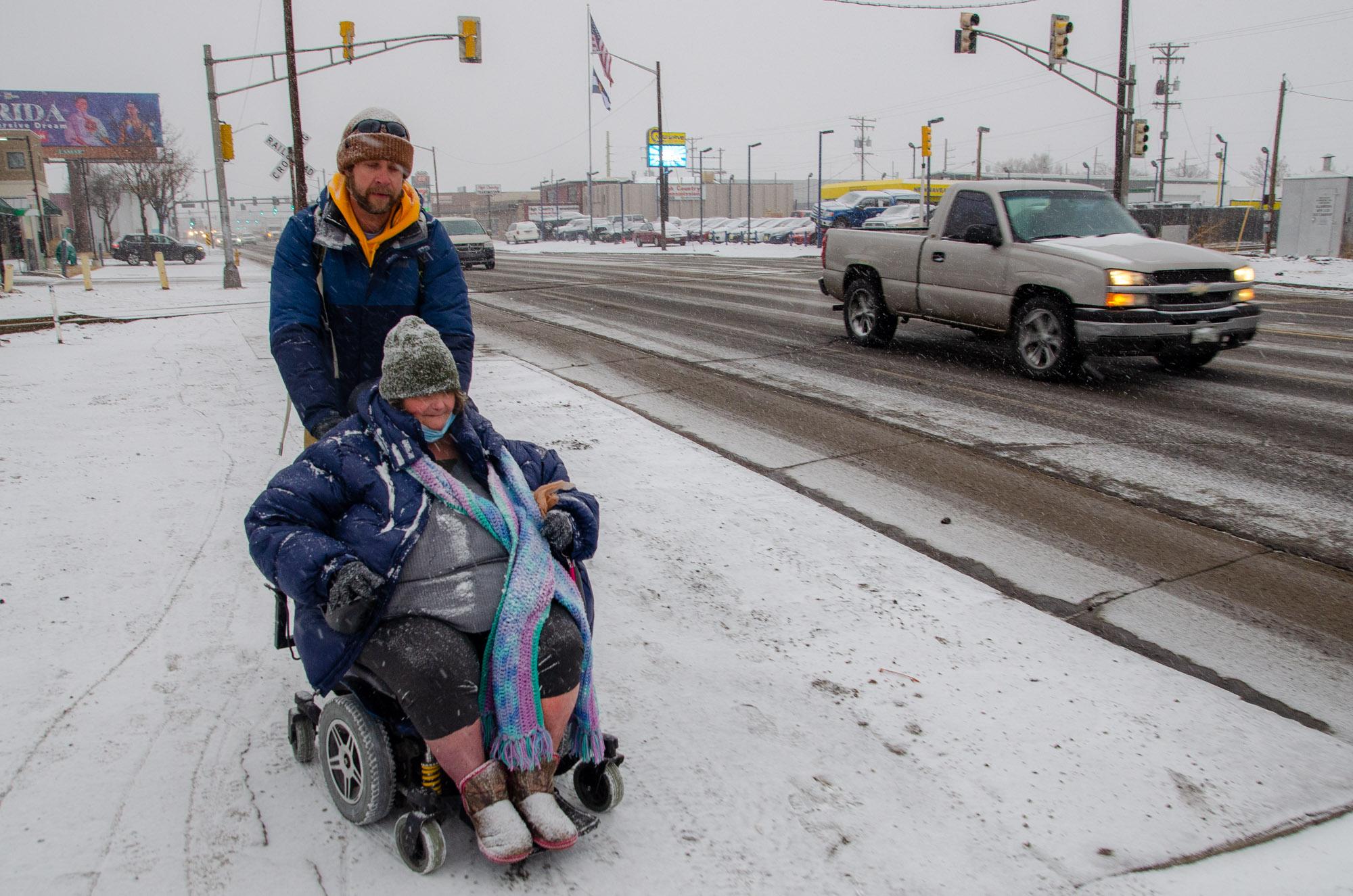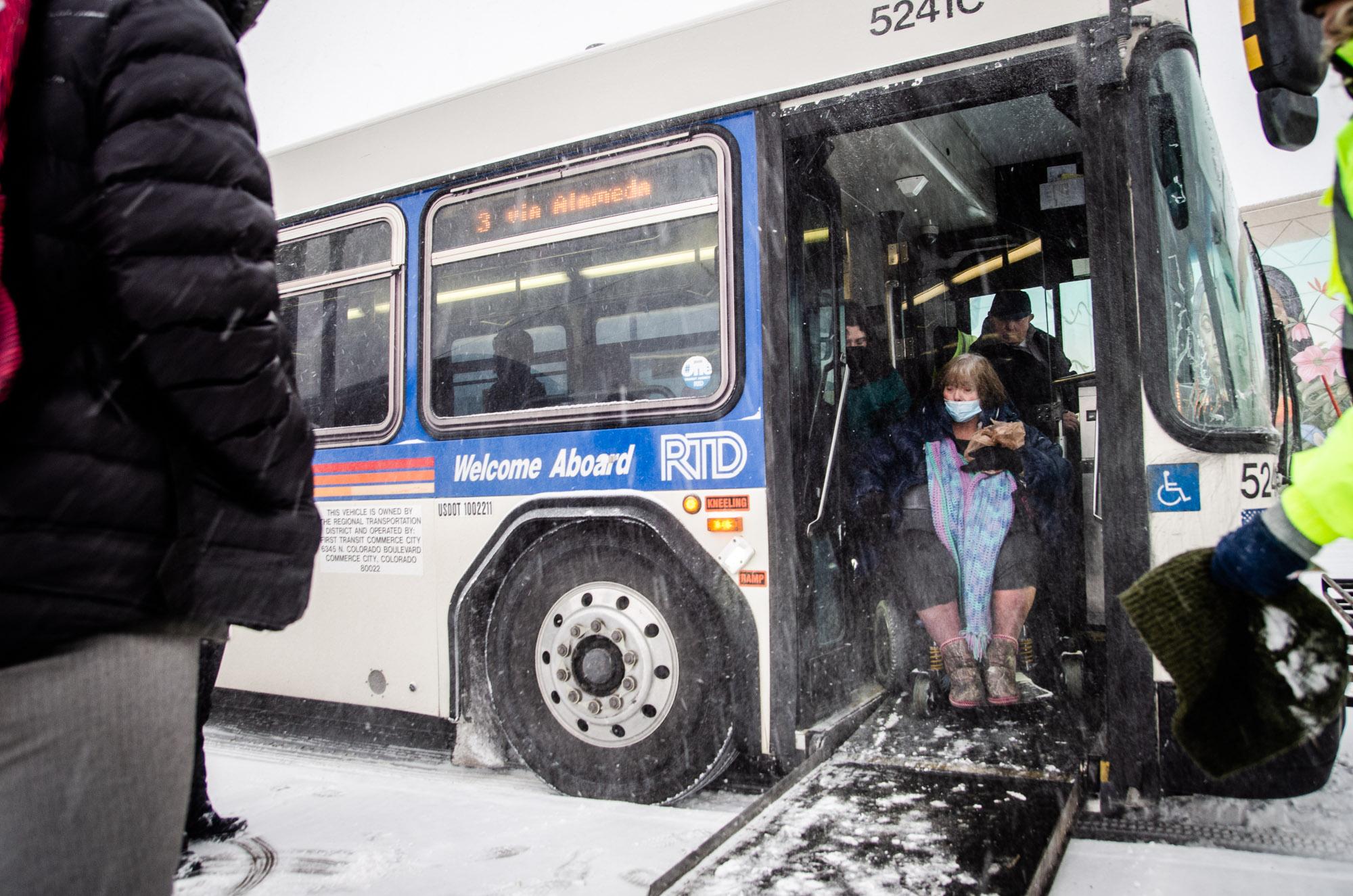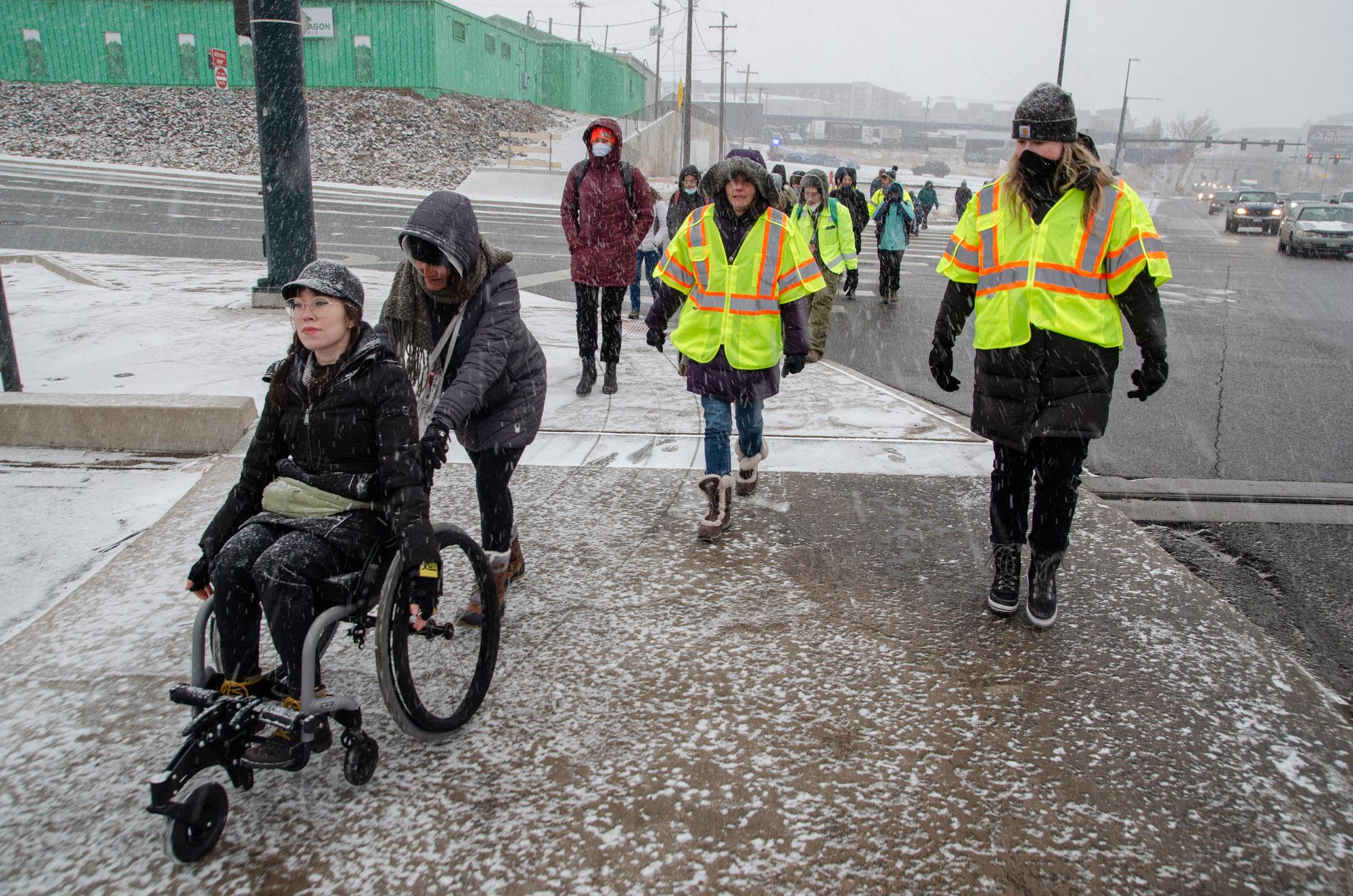They were just small bumps -- an inch or two, really. But to Phyllis Mack, they might as well have been walls.
Every time Mack's motorized wheelchair hit a part of the chewed-up sidewalk on West Alameda Avenue on a snowy and bitterly cold afternoon last week, it powered down. She would patiently take off her glove and push a button that was supposed to boot it back up.
Sometimes, it worked right away. More often, it didn't.
Mack, 73, let out uneasy laughs as we slowly plodded along. Her frustration appeared to be building.
"Maybe if we go out into the street?" she asked at one point.
The road did look somewhat smoother. But cars and trucks blew by every few seconds, almost certainly traveling faster than the posted speed limit of 35 miles an hour.
"No," she quickly said to herself. "We can't go out in the street."
Mack's anxiety rose as we approached a set of railroad tracks. So finally, she asked for help.
"If you push me, we might make it," she told Jonathon Stalls, who was following behind her.
Stalls grabbed the chair's handles.
"Go, Go, GO," he shouted, as Mack yelped and laughed.
"We made it," he said, as they cleared the tracks.

Stalls, Mack and other pedestrian safety advocates walked a little over a mile of Alameda Avenue with some senior-level city and state transportation officials last week.
Colorado's roads are increasingly dangerous for people like Mack, who lives in public housing in southwest Denver and doesn't drive. Pedestrian deaths in Colorado have nearly doubled since 2009. Now, safety advocates like Stalls are pushing officials to put pedestrians' needs front and center -- and they are finding new ways to get their message out.
Stalls is behind the popular Pedestrian Dignity TikTok. His videos show dangerous and incomplete pedestrian infrastructure in cities like Denver and have hundreds of thousands of views. This walk down Alameda was the most recent in a series he and other mobility advocates have organized in recent months.
"I'm here to show the decision-makers what it's like to roll on a street like this," Mack said. "It's very difficult, especially in weather like this."
Stalls uses his TikTok account to call out dangerous streets like Alameda, which is part of Denver's "high-injury network" that accounts for a disproportionate number of traffic deaths and serious injuries. He also uses it to "call in" transportation officials who have the power to change them.
"This isn't throwing daggers at individuals," Stalls said. "But how are we also unapologetic that this is not working for everyone? So can we honor our dignity as human beings with the tools we have and the stories we have but also be raw and honest about the harm?"
The transportation officials who braved the cold appeared willing to listen -- and more. Nicholas Williams, a deputy manager for Denver's Department of Transportation and Infrastructure, rolled part of the way in a wheelchair.
"I really enjoyed that. It was a great experience," he said, before adding: "I mean, in a learning way. Was it an ideal setting? No, recognizing that was the point. But I enjoy learning."
Rebecca White, director of CDOT's division of transportation development, said she joined the walk because she thought it was important.
"I spend a lot of time out on our roads in a car, and not as much as a pedestrian," she said.
CDOT is taking pedestrian safety more seriously than it has in the past, White said, pointing to efforts like the Denver area's Safer Main Streets initiative and the statewide Revitalizing Main Streets program. The agency is also starting a study of state-owned arterial streets, like Alameda, Colfax Avenue and Colorado Boulevard, aimed at improving their safety and accessibility.
"These roads, in many cases, are wider than our interstates," she said. "And so when you talk about a barrier to community, there's often no bigger example than roads like Colorado Boulevard. We can't do this without Denver, but we're going to join them at the table."
The snow picked up as we reached our destination and circled up to talk about the walk.
Nica Cave, a Baker resident who's used a wheelchair most of her life and helped organize this walk after seeing Stalls' TikTok videos, asked the group what they felt during the walk. Some used words like "boring," "unsafe," and "alone." No one said it was pleasant.
Jessica Myklebust, director of CDOT's Denver region, told the group it is indeed working pedestrian safety into its new projects -- including a new West Alameda bridge over the South Platte River. But she said it will take time to overhaul Colorado's vast transportation network.
"We're taking small strides," she said. "We're turning the Titanic. That's how I think of it."
Then, Alejandra Castañeda, a mother from northwest Denver, addressed the group.
"It seems like every year it's the same: funds, Titanic, it's hard to make change," she said. "So how long should we wait? What's the right amount of time to wait for dignity?"

She noted that we were standing in front of Valverde Elementary School. It's just a half-block off Alameda but was ranked 80th out of nearly 300 schools in Denver's Safe Routes to School Action Plan.
"I don't understand," she said. "I'm so confused as to how we prioritize our money, our time, our resources, to provide dignity for people."
Editor's note: We've clarified Valverde Elementary's ranking in the Denver's Safe Routes to School Action Plan.













